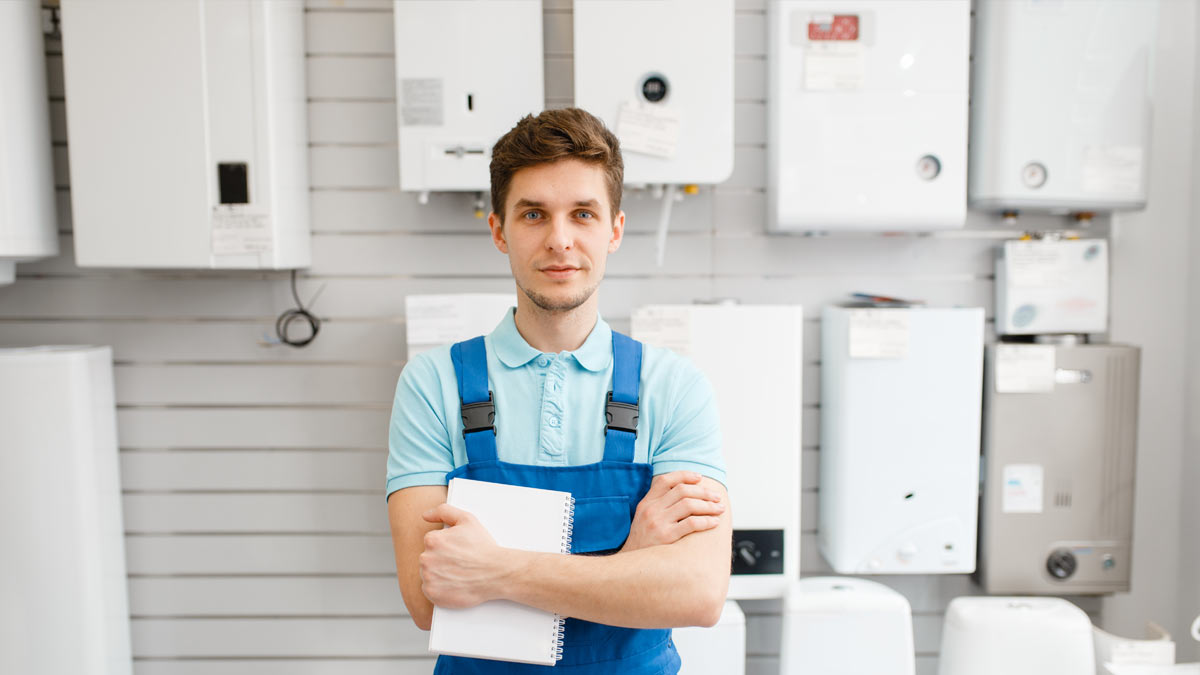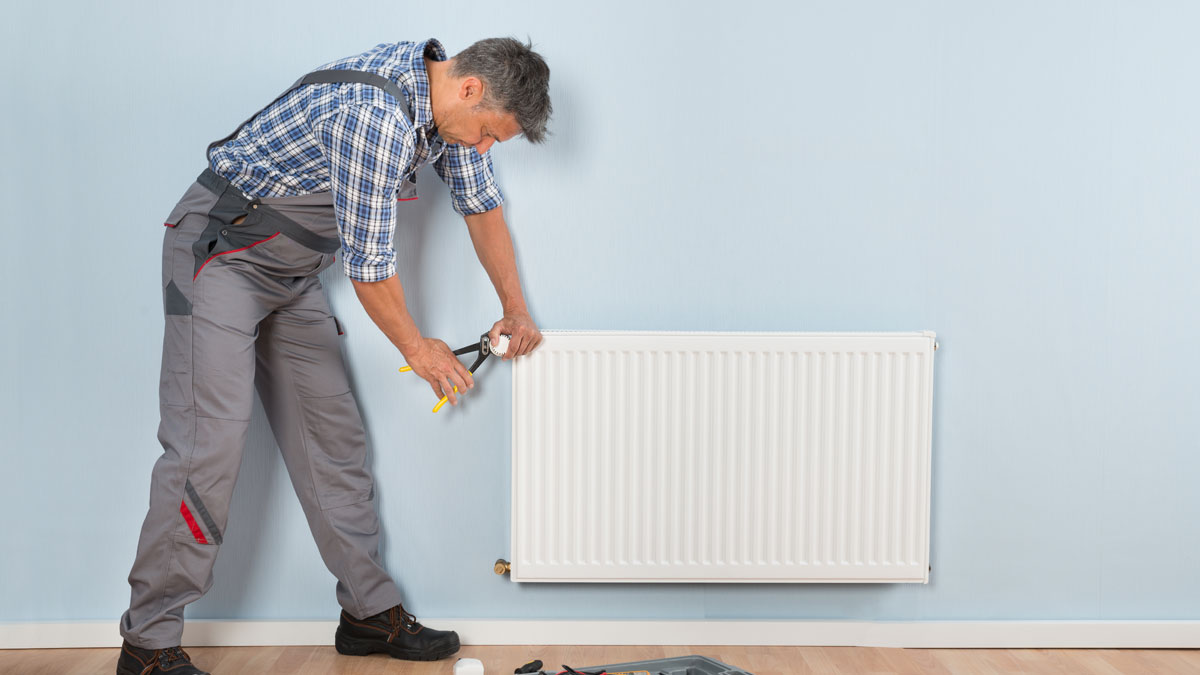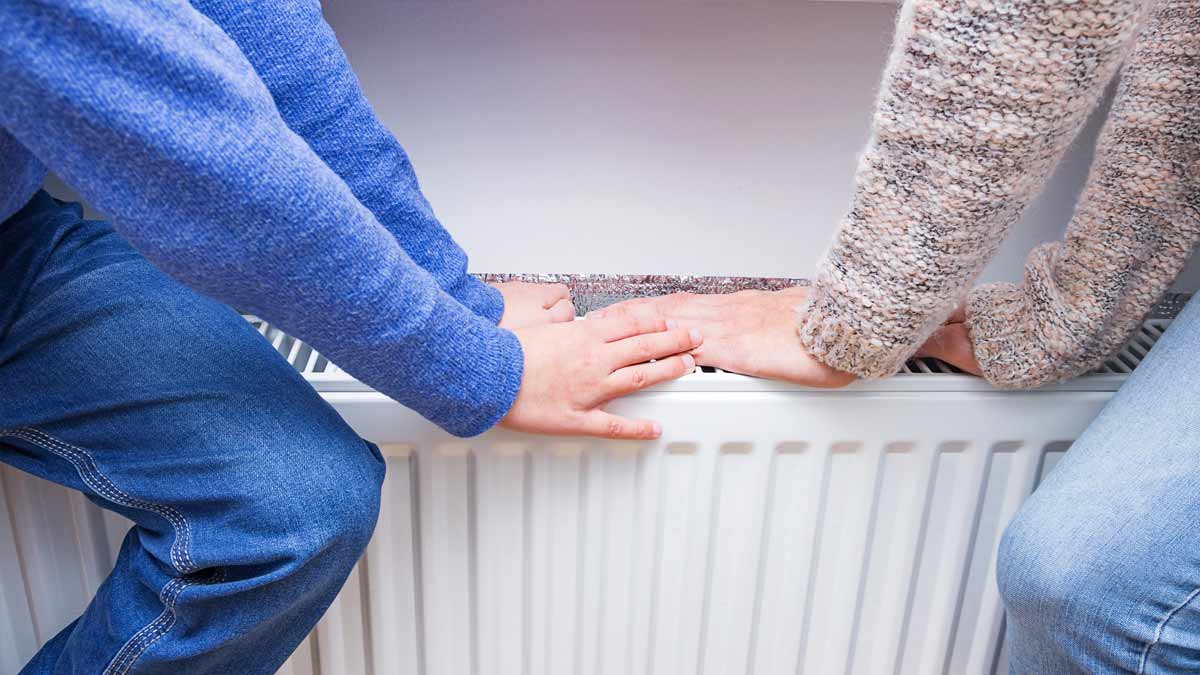If you currently have a boiler or considering getting a boiler installed at your home, this post is just for you. Most homeowners know very little about an important part of their home, the boiler. This guide covers all you need to know about this type of home heating and brings things back to basics.
Boiler Usage and Function
A boiler is a closed unit that heats water and provides either hot water or steam for heating. It is the most important part of a central heating system as it generates heat. The boiler generates heat and the pump transports warm water from the boiler to the radiators. Radiators receive hot water or steam and release heat into the air. The heat transfer causes the steam or hot water to cool once it gets to the radiator. Return to the boiler to reheat and continue the cycle. Most boilers in the UK run on natural gas automatically fed from the national gas grid.
Simply put, a boiler heats water to produce steam, and the warm air is pushed up through pipes to a baseboard or radiator. This is known as radiant heat transfer. boilers typically use natural gas or electrical energy to heat the entire tank. After the water turns into steam, a pump is used to distribute this hot water through a network of pipes to each radiator, ensuring a uniform temperature throughout the building during cold days.

Boiler Types , Understanding Different Boiler Features
Heat-only boilers, also known as regular boilers, conventional boilers, or open boilers, typically have two tanks in the loft: the hot water tank and the boiler. Like system boilers, this type of device relies on a separate hot water storage tank.
A combi boiler is a type of heating system that provides hot water on demand, so no hot or cold-water cylinder or storage tank are needed. It is a single unit that generates all the heating and hot water for the home. Combi boilers are the most popular class of boiler in the UK because they eliminate the need for large tanks and containers.
A system boiler, unlike a combi boiler, which heats all water on demand, does so with the help of a separate hot water storage cylinder. System boilers are best suited to larger households with more than one bathroom as they require much storage space.
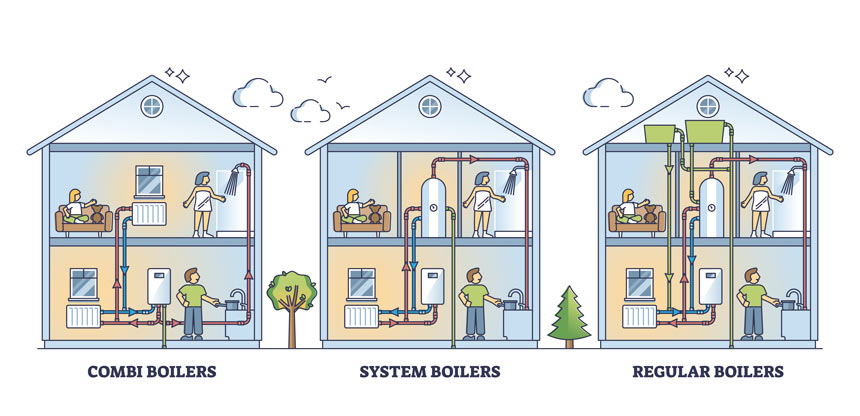
An open-air heating system with flow and expansion vessel which is not pressurized and vents heat into the atmosphere. If a boiler is overfired, steam will escape from a pipe and dissipate into the atmosphere. Even if installed or maintained improperly, an open-system boiler cannot blow up.
Pressurized boiler is a heating system without a feed or expansion tank that is sealed off from the atmosphere. However, pressurized boilers that have been installed properly are just as secure as any other domestic hot water tank. You can run a boiler hotter than you could with an open system as a closed system generates pressure.
Boiler models differ from each other on the basis of the fuel they consume. So, picking the right boiler fuel for your unit is something you’ll need to think about. That’s why we’ve put together this list to help you choose the ideal fuel for you. A gas boiler can be more efficient and durable kind of boiler than older alternatives like coal or oil. These boilers can use either natural gas or propane. All these boilers must be declared gas-safe and properly connected to the mains supply. Of course, you’ll need to be near a distribution system if you want to use natural gas.

Electric boilers use electrical energy to generate heat. This model of boiler is not only environmentally friendly, but also very energy efficient. It also works well in tight spaces. Electric water heaters work just like traditional gas water heaters, except they use electricity instead of gas to heat the water.
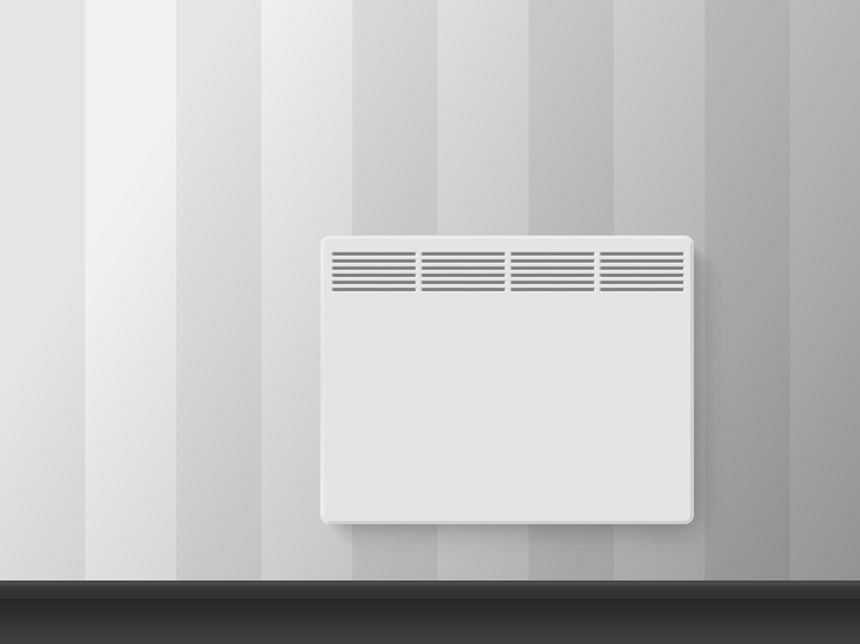
Liquid petroleum gas, also known as LPG boiler hold gas on the property rather than receiving it from the mains. LPG is a natural hydrocarbon fuel created by refining crude oil and is made up of the propane and butane gases. To run effectively, an LPG boiler needs a storage tank that is secure, well-maintained, and supplied with fuel made of LPG. It is a popular replacement for oil heating in households without access to the natural gas pipeline as it is so effective and low-carbon.
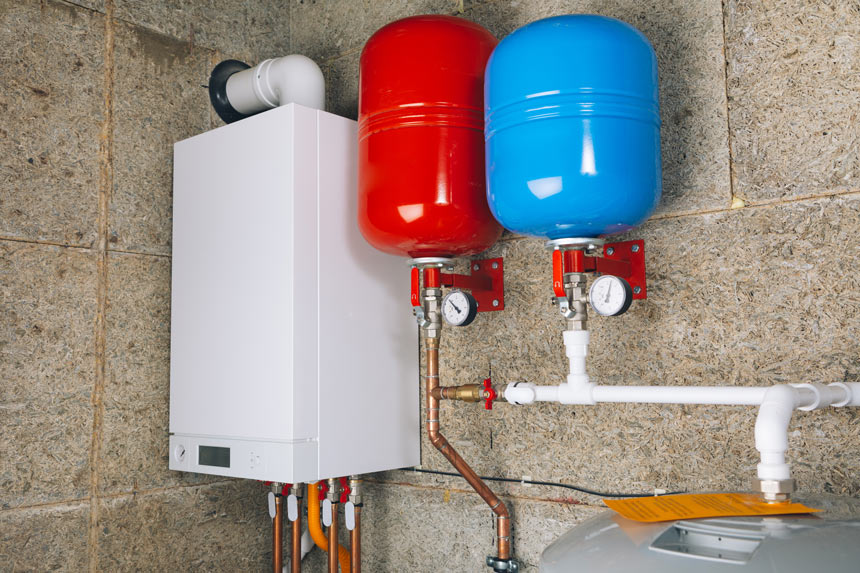
Identifying the type of boilers
How to determine what type I have?
You might not be sure which sort of boiler you have in your apartment if you’ve never had to replace or repair your heating system. The boiler types varies depending on the time the house was built and the technology of the time. We’ll indicate some key points and clarify how to identify the one your home currently has.
| Boilers | Features |
|---|---|
| Combi | Copper tubes exit the bottom of the boiler – usually three of them – without an external pump or large chunky hot water cylinder. |
| System | Copper pipes at the bottom of the boiler– usually three tubes –again with no external pump and no external expansion storage. |
| Heat-only | Two Copper coming out of the top and one coming out of the bottom with a hot water cylinder and a cold-water storage tank, locating in the loft. |
| LPG | Fuel is stored on site, not off the grid. |
| Pressurized | have a pressure gauge which is usually located on the boiler fascia |
| Open vented | It has a feed and expansion water tank in the loft |
Which kind of Boiler is Suitable for my Building?
It is critical to understand all of the boiler alternatives available to you before making a final decision and buy when selecting an appropriate boiler type for your home. With so many variable types of boiler systems, it’s important to understand its pros and cons and pros. Here’s how to find the right sort of common boilers to update your boiler before winter arrives.
Pros and Cons of a Combi boiler:
Pros:
- No cylinder required, space saving, fits in closet
- Very efficient and cheap to install and run
- Heat only the water you need, when you need it, while being cost-effective and environmentally friendly.
- Perfect for small apartments with low occupancy
Con’s:
- Reduced availability of water due to on-demand heat limits the amount of water available at any given time
- If the boiler fails, there is no backup source of hot water.
- Not suitable for large households that require hot water.
Pros and Cons of a System boiler:
Pros:
- Good flow from storage cylinder
- No cold-water tank required, saving valuable loft space
- Faster and more efficient hot water from multiple faucets at the same time.
Cons:
- May be expensive to install and repair
- Cylinders require storage.
- Hot water on demand depends on the size of the cylinder.
Pros and Cons of a Heat-only boiler:
Pros:
- The boiler can also be operated at low boiler pressure.
- Equipped with a large hot water tank, many water connections can be used at the same time.
- Multiple outlets are served simultaneously
- Perfect for large homes with high hot water needs.
Cons:
- Takes up more space than combi boilers.
- Higher operating costs due to heat loss from hot water storage tanks
- Installation costs can be high.
Pros and Cons of a Gas boiler:
Pros:
- Boiler replacements are usually simple
- Cheaper than electricity to run
- Gas supply is mostly always available and means more choice.
- Most affordable option for homes connected to the gas grid
- Boiler replacement is quick and simple
- Gas is generally much more capable than electric
Cons:
- Not all households are linked into a gas network.
- The risk of a gas leak if there is a significant malfunction
- Installations can be expensive
- Annual boiler maintenance is essential.
Pros and Cons of Electric boiler:
Pros:
- Installations are often cheaper than gas boilers.
- Annual services are recommended but not required.
- No risk of a carbon monoxide leak
- provides more placement flexibility as it doesn’t need to be placed on the wall.
- Fewer moving parts reduce the possibility of any issues.
Cons:
- Typically, more expensive to run
- Power cuts can impact access to heating and hot water.
- Not recommended for household with higher heating and hot water demands.
Still unsure of choosing the right boiler? Proplumber.uk can assist you in determining the ideal heating system for your building. With a variety of gas boilers from top brands available, our team of specialists is ready to help you with a first-rate boiler service and replacement. In addition, if your boiler faces an unsolvable problem, you can benefit from our boiler repair service.
How useful was this post?
Click on a star to rate it!
Average rating / 5. Vote count:
No votes so far! Be the first to rate this post.



